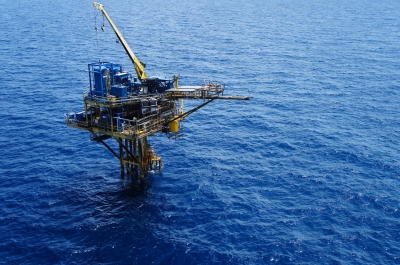Israel Should Stop Hindering Palestinian Economic Development
Israel enjoys great economic success through the exploitation of Palestine’s resources, and soon, Syria’s. The practice of resource extraction, or "pillage," in an occupied territory is illegal under international law. Yet without sanctions, but rather with critical diplomatic support and subsidization from the United States and the European Union, the violations continue.

The World Bank documents the economic impact of Israel’s obstruction of economic activity in Palestine. Israeli and foreign companies that operate in Israel and the West Bank make lucrative profits from the illegal exploitation of the Dead Sea—which is at extreme risk of collapse—the domination of Palestinian and shared freshwater resources, and the Israeli government's expropriation and subsidization of cheap land in the West Bank for industrial and agricultural purposes (again, conveniently using Palestine’s water resources). (See here, here and here for more detailed information on the devastation caused by water deficiency and high cost in Palestine.)
Without the institutionalized expropriation—theft—of land in both Israel and Palestine, this land would support a growing Palestinian economy.
Palestine also has natural gas resources. In 1999, British Gas Group, along with a Lebanese partner company, Consolidated Contractors International Company, was granted a 25-year contract to explore for oil and gas off the coast of the Gaza strip by the Palestinian Authority. They found natural gas reserves of an estimated volume of 1.4 trillion cubic feet and valued at approximately four billion dollars, with two test drills in 2000.
While the reserves strictly belong to the Palestinians, the powerlessness of the PA and the Israeli naval siege on Gaza put Israel in de facto control over any drilling activity. After talk in Israel’s cabinet in 2007 about purchasing the natural gas from Palestine, the idea was ultimately ostensibly rejected over not wanting to transfer cash to the PA or the Hamas government of Gaza. They proposed services or barter exchange instead.
The companies must wait until the political climate in Israel enables full extraction of the resources in Gaza. But with natural gas prices and demand increasing globally, the project looks even sweeter for the Palestinians. Extraction of Israel’s recently discovered gas resources in the Mediterranean has been delayed as a result of a dispute with Lebanon and Turkey. With the supply cut from Egypt, the Gaza fields could provide a crucial gas supply until Israel begins to utilize its own resources.
A Freedom of Information request through the UK Foreign and Commonwealth Office has revealed information suggesting that were Palestine to have control over its own natural resources, it could have a self sustaining economy without foreign aid. This assessment is based only on gas and oil, but other resources are currently occupied by Israel as well.
The Israeli government has reportedly explored the West Bank in secrecy around the towns of Qalqiliya and Latrun for oil, and may even have begun drilling at a site in Israel where the oil field is likely to extend under the West Bank. At the same time, PA employed consultants have also concluded that oil in areas around Hebron and Ramallah would actually be profitable to drill.
Ultimately, it is in the best interest of all parties involved for the Israelis to end their obstructive role in the Middle East, starting with Palestine. There are many internal challenges that Arab states, and all developing states for that matter, face today and external, imperial powers should not be another.
Resource theft in the West Bank and the obstruction of access to resources in the Gaza Strip and West Bank render the Palestinians largely reliant on international aid. This prevents future planning, progress and independence of the government. It absolves Israel from its duty as an occupying power that must effectively provide for the needs of the territory. The citizens of the generous donor countries do not wish to support Palestinians at a time when their own domestic budgets are being cut, and they do not want to allow Israel to continue its acts of war subsidized by their tax dollars through reconstruction and aid response and supported by the U.S. military.
When the injustice in Palestine finally comes to an end, the Palestinian state must be prepared and functional. It must have a strong economy and a competent government that can effectively regulate trade and secure the state. Development of an independent Palestinian economy is crucial for this to take place. And at the end of the day, this is critical for Israel’s security and success in the post-occupation future, assuming the conflict results in two states of course.
Reach Contributor Linda Fawaz here.



